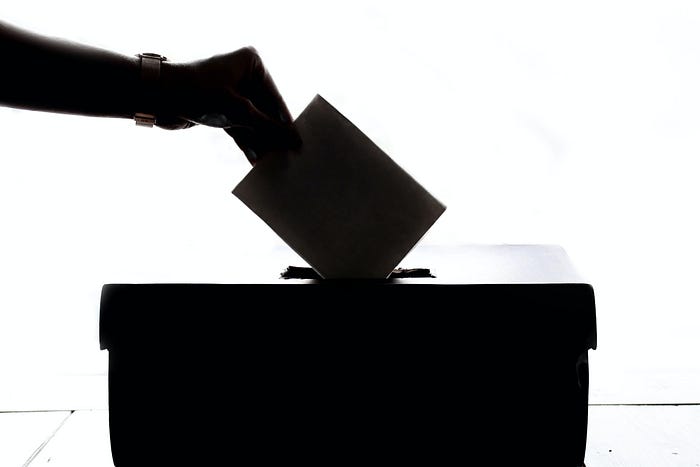This is how I could use Blockchain for election processes

If we explore the possibility of using Blockchain as the database system for election processes around the world, there are a lot of reasons why this could be a viable option. The Blockchain system will work as a validation process during elections to show that each vote is unique, duplicated, and permanent. When data is being written in Blockchain, the data will transform into read-only data and will be invariable over time. Another of the advantages of using Blockchain is that the information or data can be accessed by the public without the risk of the data being changed and compromised, because like we said before after the information has been written into the database, it becomes a read-only file; hence the public, other companies, and media platforms will be able to get their hands on the real-time information and monitor the progress of the elections, so that reduces speculation and false reports.
In many undeveloped countries, there is a high percentage of corruption in their governments, making the traditional election processes very unreliable and not trustworthy. Today's systems can only be accessed by the entity in charge of the election process and can be very easy to manipulate and modify data. This is where the voters' loss of confidence in the system arises. With Blockchain, this problem will be reduced when every person can access real-time information without changing any information. The vote center will be the only ones who will have access to writing data but will not delete or change after the information has been written to the Blockchain database. Also, using this kind of database, there is a lot of information that they can obtain for each record, like in what voting center and for what candidate is the vote, but this will depend on the design and architecture of the solution being made.

Now, moving towards “hackers,” there will always be a possibility of hackers accessing the information. The only way they can participate in the election process is if they could create a fake voting center and inject every couple minutes votes, so it will make it very difficult to differentiate if it’s a real person or a computer generating votes, but this is something the Voting Software alone can’t resolve, there need to be a combination of systems running and working together counting votes with real people voting, an option that comes to mind could be a system that has facial recognition so it will connect a vote with a face, –not to identify the voter with his vote, but to make sure his “face” is not entering more than one time to a voting center to vote-, but there could be many other possibilities and software solutions. Creating these systems will reduce the chances of getting hacked and restore the voter’s confidence in the election processes.
All of this will cost the government a large sum of money and increase confidence, and will have a larger demographic exercising their right to vote in every country.